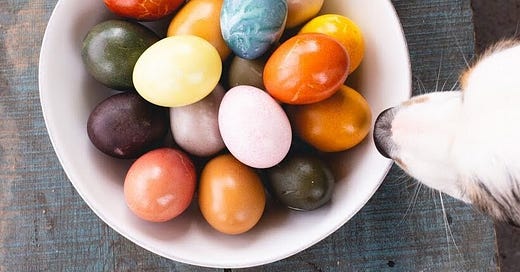How To: Naturally Dyed Easter Eggs
Using plants, foods and herbs that you already have in your kitchen or garden--these are stunning!
You might be thinking twice about dyeing Easter Eggs this year— but maybe you’re willing to splurge a little bit for the joy of this tradition. Despite the price of eggs, however, you can bring the cost of the activity down by using materials that you already have! Read on.
The practice of dyeing Easter eggs goes way back, most likely even before Easter itself, to pagan times when spring celebrations included decorating eggs as a symbol of rebirth. For me personally, the ritual goes back to the sixties, a kitchen table covered with newspaper, an arrangement of bowls, and the pastel-colored box kit with the little copper wire egg dipper inside (only one per box, my brothers and I had to take turns with it.)
We still love coloring eggs at our house, but these days we skip the artificial dyes and use the natural dyes that are probably already in your kitchen, or easily found if not. The rich, rustic colors you can get from common vegetables, spices and teas are delightful!
Keep reading with a 7-day free trial
Subscribe to The ALMANAC by Lady Farmer to keep reading this post and get 7 days of free access to the full post archives.





